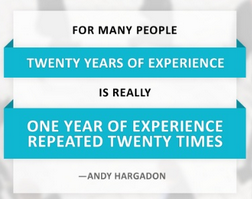A few years ago they set up a roundabout in our small town in Southern Ontario. The locals used to bring out lawn chairs and sit and watch the circus as Canadian drivers tried to negotiate an intersection that didn't have lights telling them what to do. At a roundabout in the UK you tend to accelerate into an opening. If you slow down (or stop as many Canadian drivers do) before entering it, you're going to create a chorus of honks behind you. You can expect others to see you coming and make space, but you need to be attentive and collegial in your approach. Ignoring others by cutting them off doesn't fly here. Being a waffling idiot and not taking an opening won't make you any friends either. A demanding kind of efficiency and cooperation that is foreign to many North American drivers is the expectation.
London traffic is that kind of urgent efficiency turned up to eleven. Oddly, British drivers are still very polite, waving thanks and making eye contact when they are facing a problem, like cars parked on an otherwise busy road blocking an entire lane of traffic, which seems to happen constantly. If the obstruction is on your side of the road you're supposed to wait for traffic in the clear lane to pass, but people often pull over to let through cars that are stuck if it improves the flow of traffic and doesn't slow them inordinately. This kind of consideration is another aspect of North American driving that is vanishingly rare, especially in the Greater Toronto Area where drivers tend to take on more of a 'get yours and screw everyone else' mindset.
 Based on what I've seen, even a hesitant, relatively slow British driver would be considered near the pinnacle of driving talent in Canada, which is one of the reasons I find driving a car there tedious. Given a choice, Canadian drivers are content to give over about half of their attention to driving effectively, mainly because the massive roads with constant shoulders, signalling that tells you what to do rather than take initiative and minimal traffic volume encourage it. When things do get busy, as in Toronto, asshole is the default rather than let's all work together to make this go more smoothly.
Based on what I've seen, even a hesitant, relatively slow British driver would be considered near the pinnacle of driving talent in Canada, which is one of the reasons I find driving a car there tedious. Given a choice, Canadian drivers are content to give over about half of their attention to driving effectively, mainly because the massive roads with constant shoulders, signalling that tells you what to do rather than take initiative and minimal traffic volume encourage it. When things do get busy, as in Toronto, asshole is the default rather than let's all work together to make this go more smoothly.Even with steep congestion taxes London is a constant flow of traffic, but it's all moving, and usually quickly. Into this maelstrom, thanks to demands of space and emissions requirements, motorcycles thrive. My first view when we got above ground and out of The Tube was a blood delivery bike effortlessly cutting through traffic on a busy Thursday morning. An older guy on a Suzuki Vstrom, he handled his machine with the kind of effortless grace you see of people who have a lot of miles under them. He seemed to see everything at once and disappeared through the delivery vans and cars in a flash of effortless speed.

Two wheeled delivery vehicles thrive in London, with couriers of all shapes and sizes on everything from 50cc scooters to big BMWs making the rounds. As we were walking toward Camden Market a rideere pulled into one of the few unused pieces of tarmac in London (the small triangle a car wouldn't fit in before a curb) and carried out an animated conversation over bluetooth head piece with his dispatcher.
The efficiency of small vehicles like motorbikes isn't ignored in England like it is in Canada. Bikes can squeeze through gaps that would cause a queue otherwise and split lanes. Parking is more efficient for bikes, so half a dozen commuters can and do park in the space taken up by one SUV.
Being a dispatch rider in London is considered a badge of distinction by motorcyclists here. If you can survive that you're a good rider with exceptional awareness and control. If you weren't, you wouldn't last.
We're now on a train to Norwich (my dad's hometown) where we're picking up a cousin's car and driving in the UK for the first time. I always look forward to it because it's engaging and challenging. You can't eat or drink and drive here like you can in Canada, but you wouldn't want to. You seldom stop due to a lack of traffic lights and a plethora of roundabouts and the roads are tight, twisty and require your attention. To top it all off everything is backwards. For the first couple of days I chant that like a mantra inside my head when I'm driving here. It keeps me on the right side of the road and gets me used to indicators and wipers being on opposite sides more quickly. Within a day or two I'm acclimatized and accidentally cleaning my windows way less.

I might try and find a motorbike rental while I'm home and see if I can find out where my Granddad Bill took that picture on his Coventry Eagle and get a photo of myself on something similarly English and iconoclastic, perhaps an Ariel Ace?
The other night I was in the car back to my cousin's house and we were intent on making time. With the twisty, tight roads it felt like navigating a rally stage As we thrashed down the highway a Porsche 911 blew past us like we were going backwards. I love UK driving culture.




